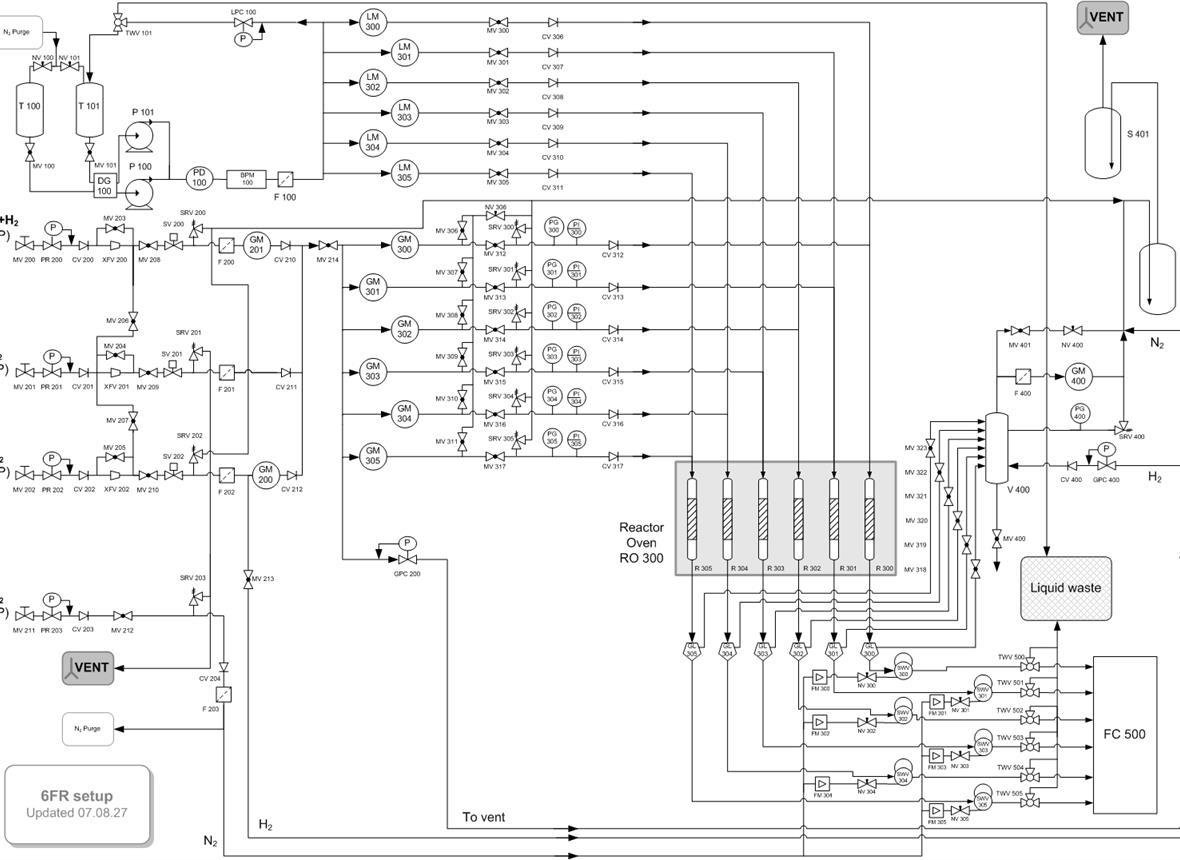Abstract
Reducing the experimental time required to obtain a robust kinetic model with reliable kinetic parameters has been a long-standing objective in reaction engineering. In the present study, we compare the kinetic modeling of two sets of data obtained using periodic reaction conditions (PRC) and stationary reaction conditions (SRC). As a case study, we use the well-known methanol-to-hydrocarbon reaction on HZSM-5 zeolite. The SRC experiments are conducted with a temperature of 425–475 °C, a total pressure of 2.5 bar, a partial pressure for methanol of 1.125 bar, a space time of 0.1–1.5 gcat h molC−1, a initial molar ratio water:methanol of 0–0.66 and 16 h on stream. The PRC experiments involve sinusoidal variation in the methanol and water flowrates of 135 ± 88 µL min−1 and 20 ± 20 µL min−1, respectively, with a period of 16 h or sinusoidal variation in the temperature of 450 ± 25 °C with periods of 8 and 16 h. Several strategies are then used in fitting the kinetic parameters of five models. We obtain relatively similar results in terms of model discrimination, the parameters, and confidence intervals with a cumulative experimental time of 64 h on stream under the PRC compared with 192 h on stream under the SRC, a reduction of 67% in the experimental time.
Keywords
OLG
MKM
CRE
